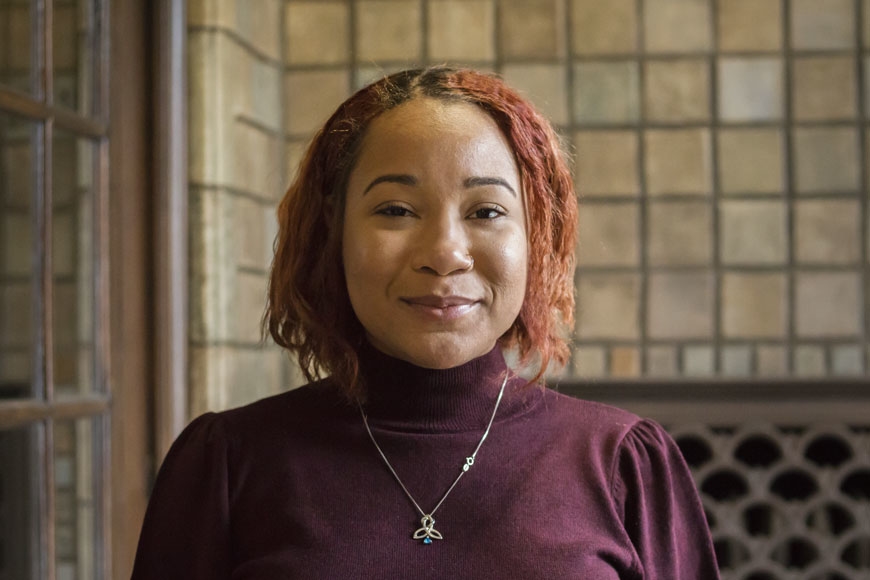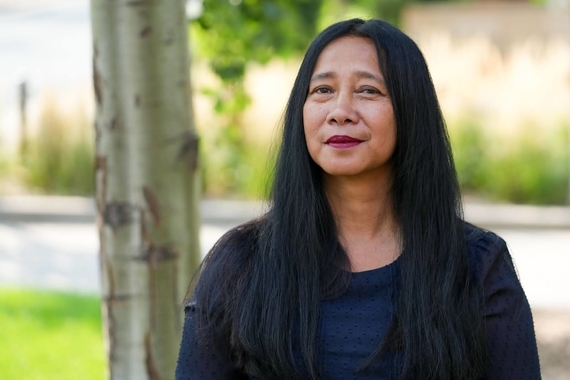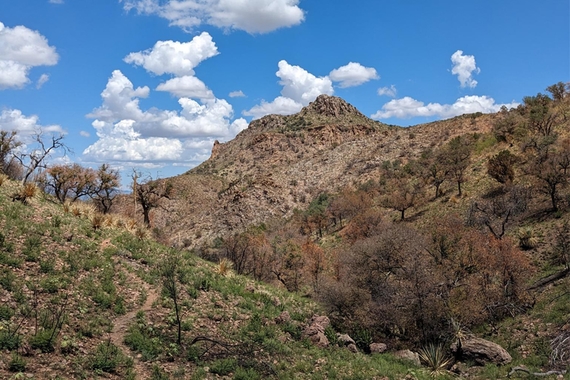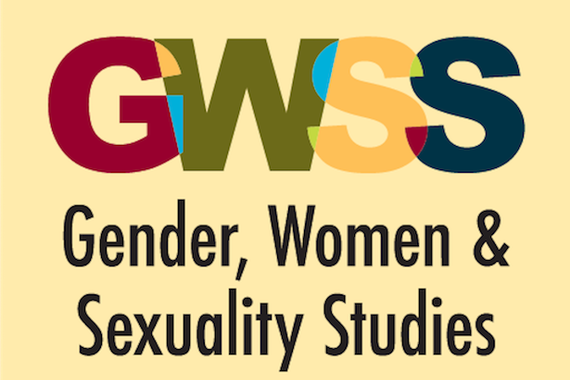Discovery of Self
Focused, motivated, and curious about the people around her, Clemesha Jámilah Grayer has the world at her fingertips as she studies the human experience. Grayer, a 2017 UMN graduate, is from Chicago, Illinois, and double-majored in Chicano & Latino studies and gender, women & sexuality studies (GWSS).
Grayer found her passion in a women’s studies course she took in high school, becoming intrigued by the storytelling, narratives, and human experiences she encountered in that class. “I knew that I wanted to get into something that I was interested in, but was also very relevant to me . . . to find out more about myself and about the world around me.” Grayer explains.
Exploring Identities through Research
One way that Grayer followed her curiosity was by conducting research that focused on the human experience. “I found that a lot of people are dealing with things like multiple identities and the complexities of that,” she says.
Grayer worked on her own research project through the GWSS department, based on Afro-Latina diaspora, womanhood, and the invisibilization of mixed identities. Grayer says that this was a combination of research and an autoethnography that delved into the complexities of radicalized identities. “I go into my own personal struggles as a way to ground readers into the experience,” Grayer explains. “But I also utilized scholars whom not only validate these experiences, but brought context into what it means to be Afro-Latina.”
With the mentorship, guidance, and support of Professor Zenzele Isoke, Grayer was able to explore the idea of blackness and understand the nuances of it. “[Isoke] challenged and empowered me to explore more. I learned about blackness, the connection between who we are and where we all come from,” explains Grayer. “Most importantly, I learned more about myself. I feel like I am more confident and comfortable in who I am as a person and where I stand in the world. I no longer feel the need to conform.”
Diversity and Inclusion at Work
Currently, Grayer works as an AmeriCorps Vista diversity and inclusion coordinator at Big Brothers Big Sisters. She has been there for three months, diligently planning activities that implement diversity and inclusion. “I’m trying to demystify this whole understanding of diversity and inclusion, especially in the realm of mentoring,” explains Grayer. “Diversity and inclusion work is [about] this whole concept around minoritized groups and identities, but it’s also trying to center more diverse thoughts and ways of being as well.”
In order to demystify the understanding of diversity and inclusion, Grayer plans to organize and conduct training in diversity and inclusion (DI) work and cultural competency. As a person who loves being an active participant in activities and discussions, Grayer is concerned that it will be difficult to step back. “I need to be okay with just falling back and observing . . . I always want to be in the mix of things and try to figure things out,” Grayer says. “People actually need to do the figuring out themselves, and then you come in with that aid and support.”
As Grayer continues to move forward with these initiatives, she states that DI work and implementation is harder than she had expected. Still, she doesn’t lose heart. Rather, Grayer is determined to make a positive difference in the world and points to how her college experience prepared her for the challenges she faces.
Awareness is Key
One of the main skills that Grayer developed through her GWSS classes is “definitely an awareness of society,” she says. “It’s always nice to know where somebody or something came from, having that foundation and understanding of it, having different lenses to look through, and always keeping that in your tool box.”
Grayer’s advice to current undergraduates in the GWSS department is to be open and aware of things happening in the world, but to not take them in all at once. “You’ll get overloaded,” she says. “School is already stressful enough, so take it slow and don’t take too much in all a once.”
Grayer also states that it’s important that the GWSS Department is empowering students to ask questions despite backlash, especially in feminism. “Because everything is so polarized in society, it’s hard to see the bigger picture,” Grayer says. “It’s ugly and raw, but as people, we miss a lot of the narrative because of this reality.”
Lastly, Grayer finds it essential to have conversations on hard topics, even if one doesn’t agree. “[Having these conversations] is truly what it means to learn and to be a scholar. As the student, do not be afraid of prosecution. Be tactful, but humble.”
This story was written by an undergraduate student in CLA.



